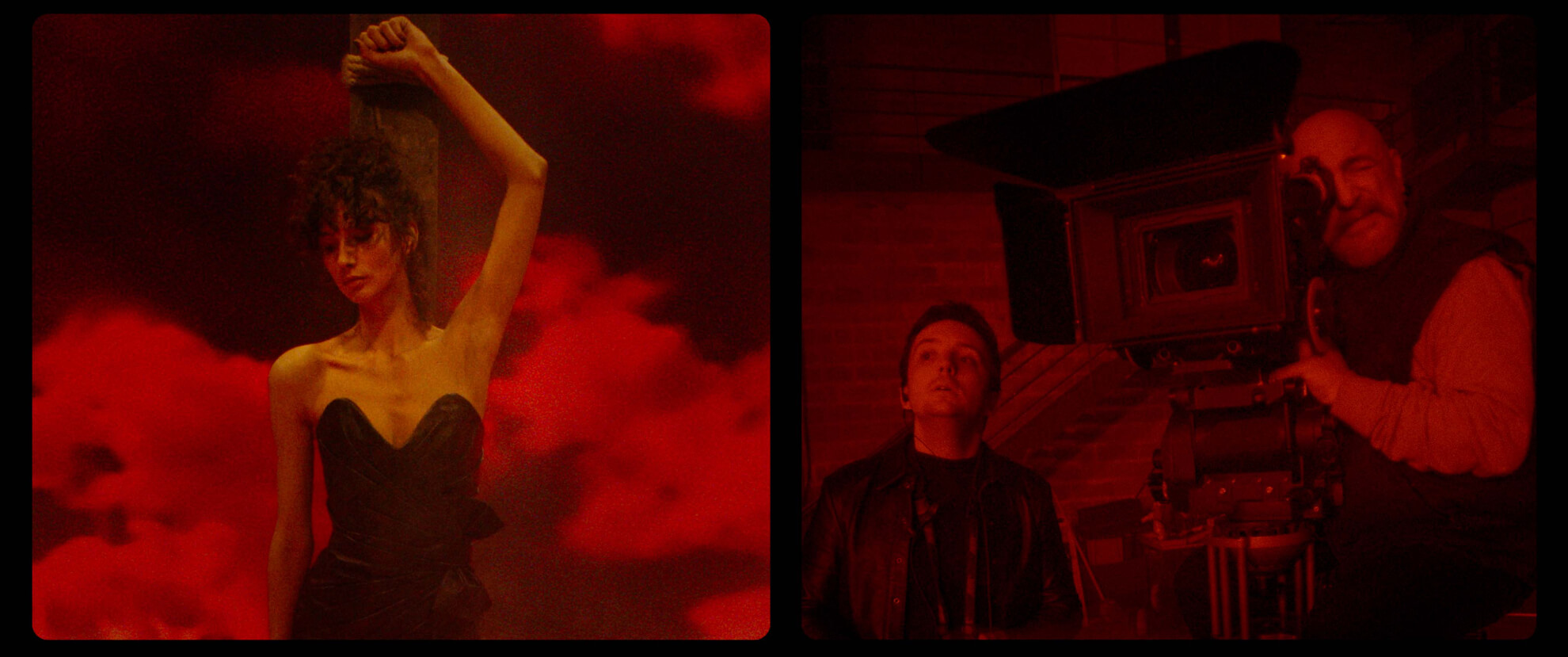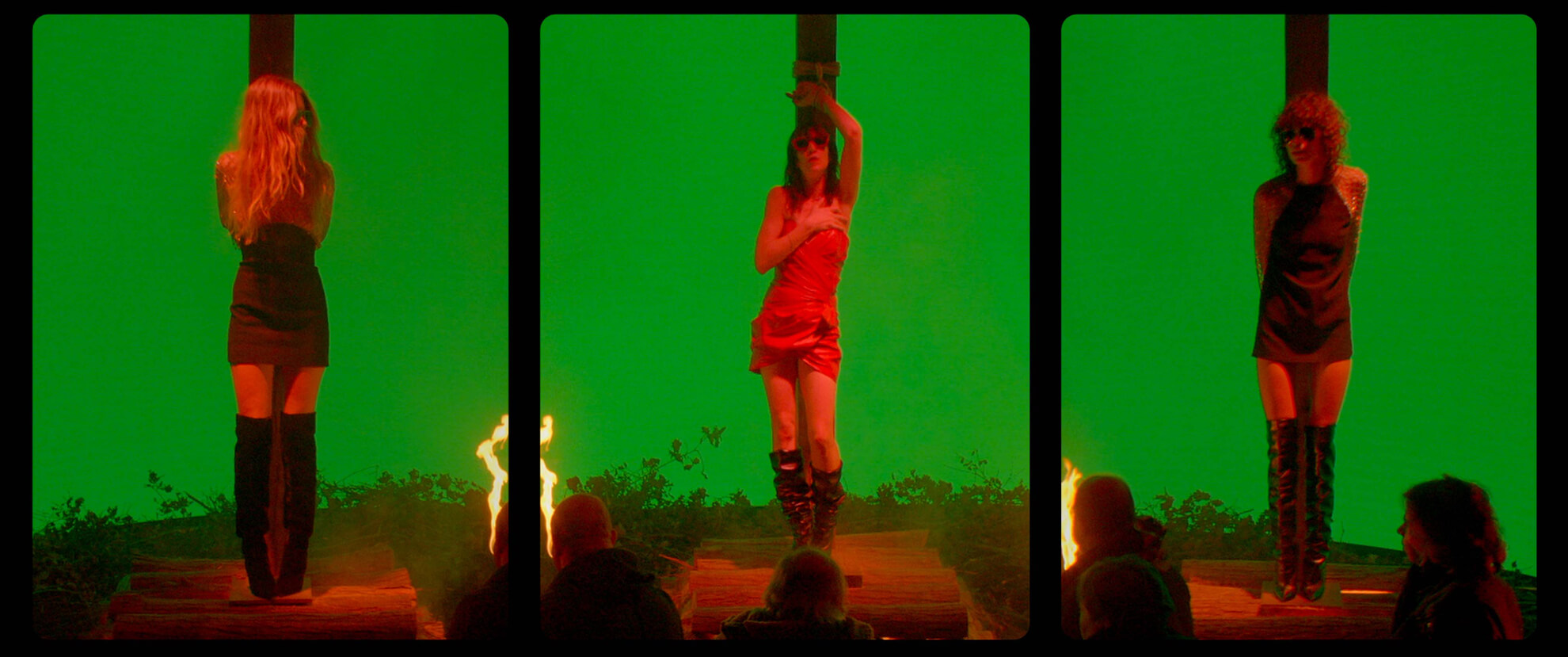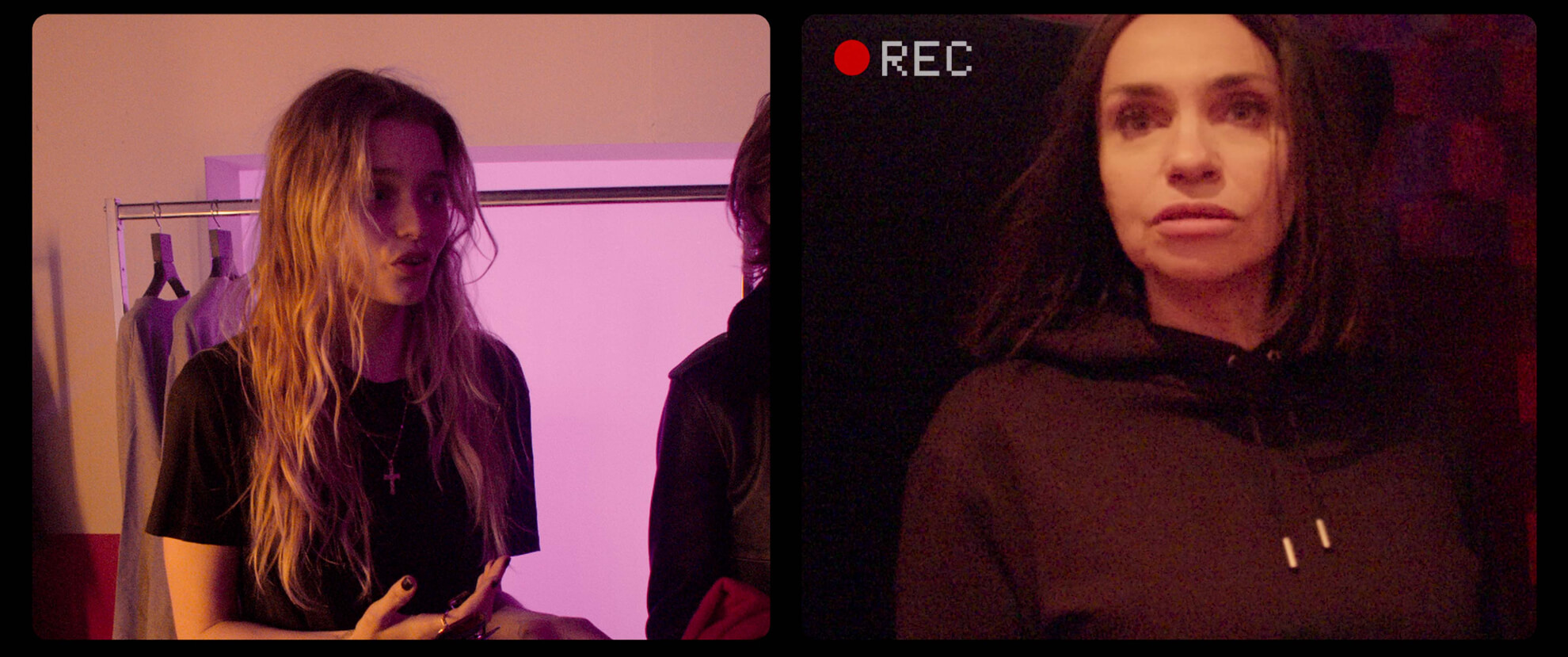Every year there comes one or two movies that set out to challenge what the audience's viewing experience is supposed to look like. Every year that a Gaspar Noé project is released, you can almost guarantee that it will create a discussion about the masochistic pleasures of being disturbed through art. Lux Æterna is one such film. This time it's turning its eye on cinema itself. WARNING: This film may potentially trigger seizures for people with photosensitive epilepsy. Viewer discretion is advised.

Double Vision: Despite coming in at an ultra-lean 51-minute runtime, Noé. employs a visual tactic that increases the amount of narrative being delivered to the audience. Dividing the frame in half, two pictures play simultaneously, efficiently showing opposite angles of the same conversation or following one of the film's primary subjects as they are dragged across the set of the fictional film-within-the-film. Noé is yet again looking to convey the chaotic and uncontrollable nature of a story that quickly spirals out of control and seeing how communication/relationships on set fall apart from two different simultaneous perspectives drives the point home. Lux Æterna is about a bunch of creatives caught up in the art, drawn to the toxicity of metaphor when each person thinks their interpretation is the truth. On the surface, it is a film set out of control, with too many hands grabbing for power over the project. Underneath, it is a condemnation of selfishness, disunion, and tyrannical behavior in a culture that must be collaborative. Interspersed within the narrative are quotes from legacy filmmakers about their own behavior on set — each one etched into stone as if the whole film is a religious document of the form this mindset takes on in practice, culminating in an apocalyptic ten-minute finale that is very Noé in abrasive execution.

At The Top Of Their Lungs: The road to selling the experience begins with two veteran international actresses who sit on a furnished set, laughing about stories of the ways they've sold themselves for their careers, or been objectified in pursuit of art. It is a cogent moment — just before unwanted parties start pouring into the room with their very own agendas to be fulfilled — as it sets the stage for how dehumanizing a large-scale project can be. That's more than a little depressing, isn't it? While it may not be the norm, the topic of disastrous productions has become a pop culture topic all its own. The truly scary idea in Lux Æterna is what happens when your cursed set is under the influence of Gaspar Noé. In many ways this film shares DNA with his 2018 feature Climax; his filmography is provocative and upsetting but it is still a form of escapism. It is exposure therapy to fictionalized disasters. But lately, the filmmaker has been poking through the barrier between his work and its audience, signifying that not even the art itself is sacred — none of that is more exemplified by witnessing a studio full of narcissists going off half-cocked while their actresses suffer in front of the camera with no help coming to them. Lux Æterna is an entry into the cinema of pain and you may literally have to look away from the screen to keep from being overwhelmed. No filmmaker working today is as purposefully visceral as Noé. In the end, it is hoped that you will come out of the experience with empathy on your side, encouraged to avoid upsetting humanity by only thinking of yourself.

Lux Æterna is exposure therapy.

Watch Lux Æterna Now
